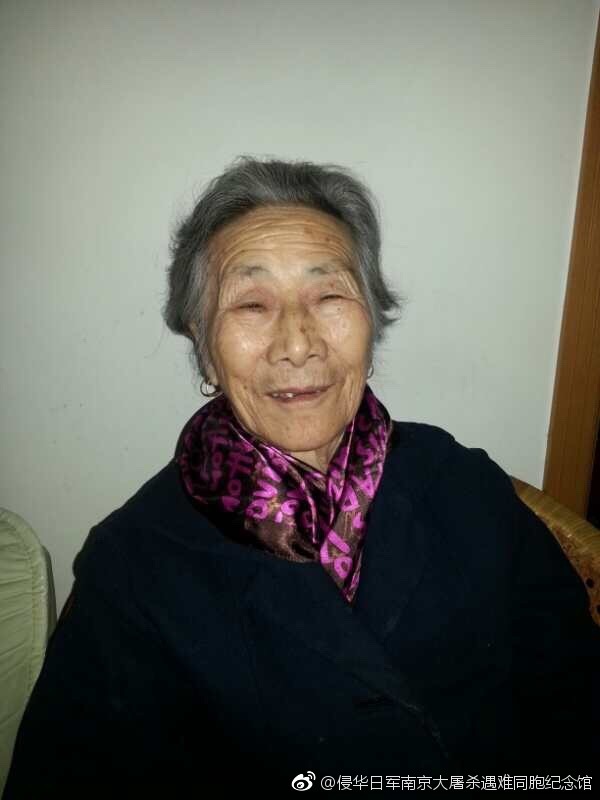Nanjing Massacre survivor dies at 88
- By Wu Jin
 0 Comment(s)
0 Comment(s) Print
Print E-mail China.org.cn, May 3, 2018
E-mail China.org.cn, May 3, 2018
The traumatic memory of one of modern China's bloodiest events may have finally stopped haunting Zhang Cuiying, a survivor of the Nanjing Massacre.

Zhang died on April 30 at the age of 88, marking the 11th death in the past four months of a registered survivor of the slaughter in Nanjing.
According to the Memorial Hall of the Victims in Nanjing Massacre by Japanese Invaders, there are no more than 100 survivors still living today as eyewitnesses to the wartime atrocities.
"Hope you won't have to undergo another apocalyptic devastation in your next life," read one of the comments posted by users on the Chinese social media platform Weibo in the wake of Zhang's death.
Darkness engulfed the Memorial Hall as the lights were switched off in homage to Zhang on the day of her passing. She died peacefully compared to her contemporaries, who lost their lives to bombs, rifles, bayonets and fires 80 years ago when Nanjing, the then-capital, fell into the hands of Japanese soldiers.
Zhang was only 7 years old at the time of the massacre. Her mother shaved off all of Zhang's hair to conceal the girl's female identity, and smeared her own face with ashes from kitchen stove. Having fled from the onslaught, Zhang and her family stayed for about one month in a reed field, living off of grass and tree roots.
"Many people chose the reed field as a safe haven while fleeing to the north of the Yangtze River. As the reeds blurred the sight of the Japanese invaders, they hit the reeds with their bayonets," said Cao Yu, Zhang's daughter, who recalled her mother's narrow escape during a recent interview with the Beijing Youth Daily.
"At that time, her leg was cut by a bayonet, but she dared not cry out," Cao said.
As a young girl, Zhang witnessed the scenes of dead bodies left in piles on the ground or dumped in the Yangtze River, where the blood turned the water red.
When Zhang and her family returned home after the massacre, they found that their house had been destroyed by fire, and the gold nuggets and silver coins they had buried underground were all missing.
Cao Hongtai, Zhang's husband and also a massacre survivor, died in 2004.
According to their children, Zhang and Cao always fell into silence when visiting the bank of the Yangtze River.
It was not until the 1980s, when the Memorial Hall was built, that Zhang and her husband started to tell the details of the massacre to their children.
"When I heard it, I thought it was incredible," Cao recalled. "How could human beings be so cruel?"
Zhang and Cao had joined an oral history program initiated by the Memorial Hall in order to create historical records of the war and war crimes of the past. Now, that baton has been passed to their children.
"Through the oral programs, we'll make the truth of history heard widely and extensively," Cao said.






Go to Forum >>0 Comment(s)